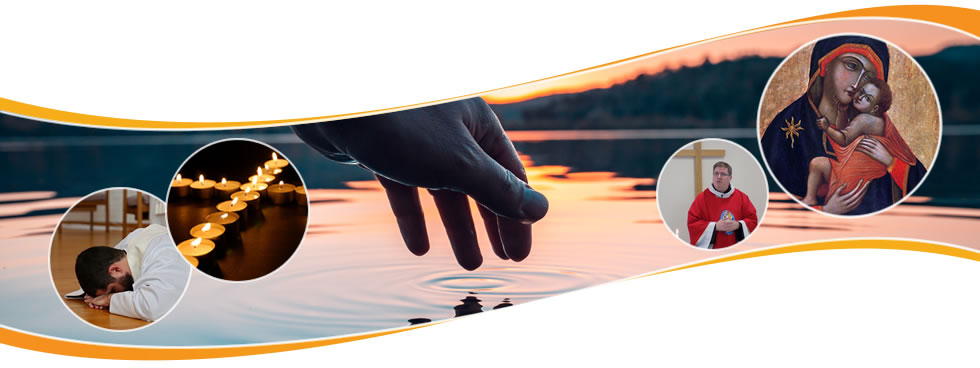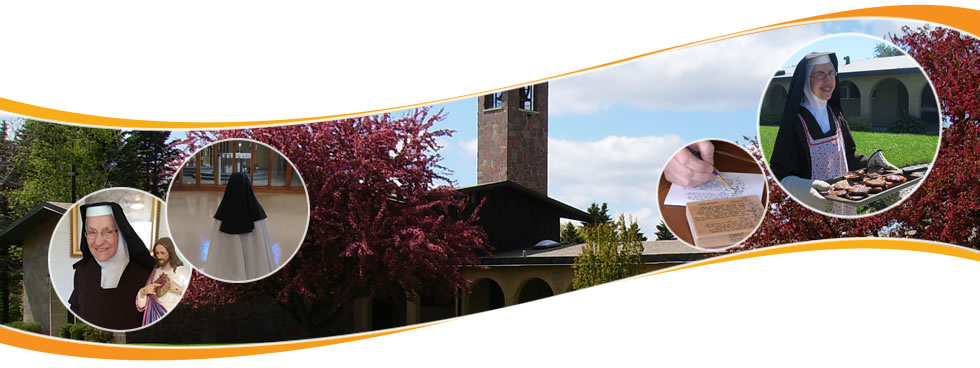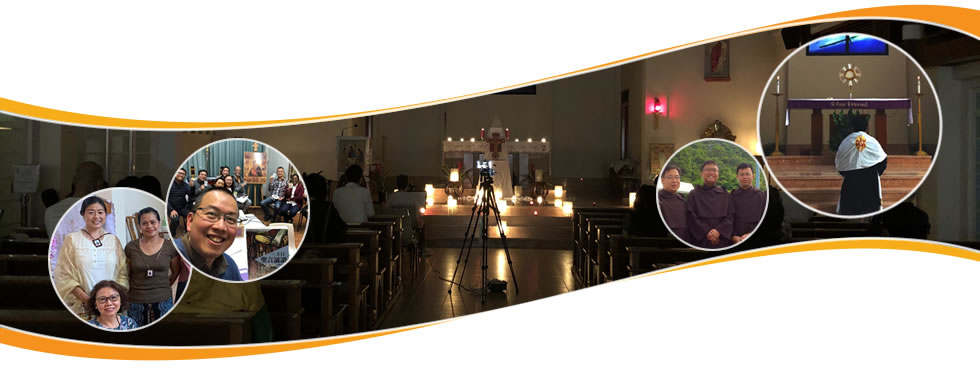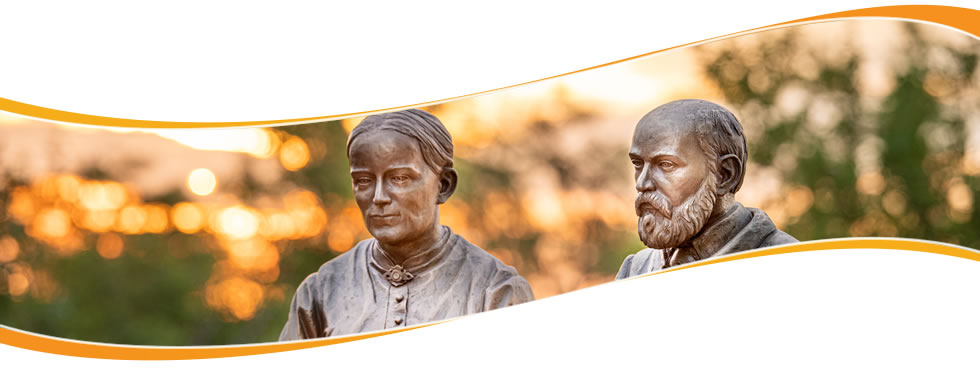“Let the one among you who is guiltless
be the first to throw a stone at her!”
John 8:1-11
1. Opening prayer
Lord Jesus, send your Spirit to help us to read the Scriptures with the same mind that you read them to the disciples on the way to Emmaus. In the light of the Word, written in the Bible, you helped them to discover the presence of God in the disturbing events of your sentence and death. Thus, the cross that seemed to be the end of all hope became for them the source of life and of resurrection.
Create in us silence so that we may listen to your voice in Creation and in the Scriptures, in events and in people, above all in the poor and suffering. May your word guide us so that we too, like the two disciples from Emmaus, may experience the force of your resurrection and witness to others that you are alive in our midst as source of fraternity, justice and peace. We ask this of you, Jesus, son of Mary, who revealed to us the Father and sent us your Spirit. Amen.
2. Reading
a) A key to the reading:
Today’s text leads us to a meditation on the conflict between Jesus and the Scribes and Pharisees. Because of his preaching and his manner of acting, the doctors of the law and the Pharisees do not like Jesus. So they seek every possible way to accuse and eliminate him. They bring before him a woman caught in adultery to ask him whether they should observe the law that said that such a woman was to be stoned. They wanted to provoke Jesus. By posing as people concerned for the law, they were using the woman to argue with Jesus. The same story happens time and time again. Under the pretence of concern for the law of God, the three monotheistic religions: Judaism, Christianity and Islam, have condemned and massacred many people. This goes on today too. Under the guise of concern for the law of God, many people are deprived of communion and even excluded from the community. Laws and customs are created to exclude and marginalize certain categories of people.
As we read John 8:1-11, it is good to consider the text as it were a mirror reflecting our own likeness. As we read, let us try to note well the attitudes, words and action of those who appear in the story: the Scribes, the Pharisees, the woman. Jesus and the people.
b) A division of the text as a help to the reader:
Jn 8:1-2: Jesus goes to the temple to teach the crowd
Jn 8:3-6a: His adversaries provoke him
Jn 8:6b: Jesus’ reaction, he writes on the ground
Jn 8:7-8: Second provocation, and same reaction from Jesus
Jn 8:9-11: Final epilogue
c) Text:
 1 and Jesus went to the Mount of Olives. 2 At daybreak he appeared in the Temple again; and as all the people came to him, he sat down and began to teach them. 3 The scribes and Pharisees brought a woman along who had been caught committing adultery; and making her stand there in the middle 4 they said to Jesus, 'Master, this woman was caught in the very act of committing adultery, 5 and in the Law Moses has ordered us to stone women of this kind. What have you got to say?' 6 They asked him this as a test, looking for an accusation to use against him. But Jesus bent down and started writing on the ground with his finger. 7 As they persisted with their question, he straightened up and said, 'Let the one among you who is guiltless be the first to throw a stone at her.' 8 Then he bent down and continued writing on the ground. 9 When they heard this they went away one by one, beginning with the eldest, until the last one had gone and Jesus was left alone with the woman, who remained in the middle. 10 Jesus again straightened up and said, 'Woman, where are they? Has no one condemned you?' 11 'No one, sir,' she replied. 'Neither do I condemn you,' said Jesus. 'Go away, and from this moment sin no more.'
1 and Jesus went to the Mount of Olives. 2 At daybreak he appeared in the Temple again; and as all the people came to him, he sat down and began to teach them. 3 The scribes and Pharisees brought a woman along who had been caught committing adultery; and making her stand there in the middle 4 they said to Jesus, 'Master, this woman was caught in the very act of committing adultery, 5 and in the Law Moses has ordered us to stone women of this kind. What have you got to say?' 6 They asked him this as a test, looking for an accusation to use against him. But Jesus bent down and started writing on the ground with his finger. 7 As they persisted with their question, he straightened up and said, 'Let the one among you who is guiltless be the first to throw a stone at her.' 8 Then he bent down and continued writing on the ground. 9 When they heard this they went away one by one, beginning with the eldest, until the last one had gone and Jesus was left alone with the woman, who remained in the middle. 10 Jesus again straightened up and said, 'Woman, where are they? Has no one condemned you?' 11 'No one, sir,' she replied. 'Neither do I condemn you,' said Jesus. 'Go away, and from this moment sin no more.'
3. A moment of prayerful silence
so that the Word of God may penetrate and enlighten our life.
4. Some questions
to help us in our personal reflection.
a) What struck or pleased you most in this text? Why?
b) Several persons and groups appear in this episode. What do they say and do?
c) Try to step into the woman’s shoes: how did she feel?
d) Why did Jesus begin to write with this finger on the ground?
e) What can and must our community do to welcome those excluded?
5. For those who wish to go deeper into the theme
a) Literary context:
Scholars say that John’s Gospel grew gradually, that is, that it was written bit by bit. Over some time, up to the end of the first century, members of John’s community in Asia Minor, recalled and added details to events in Jesus’ life. One of these events, to which some details were added, is our text, the episode concerning the woman about to be stoned (Jn 8:1-11). A little before our text, Jesus had said: "If any man is thirsty, let him come to me! Let the man come and drink who believes in me!” (Jn 7:37). This statement provoked much discussion (Jn 7:40-53). The Pharisees even ridiculed the people, considering them ignorant for believing in Jesus. Nicodemus reacted saying: “Surely the law does not allow us to pass judgement on a man without giving him a hearing and discovering what he is about?” (Jn 7:51-52). After our text we come across another statement by Jesus: "I am the light of the world!" (Jn 8:12), which again provoked discussion among the Jews. The episode of the woman whom the law would have condemned, but who is pardoned by Jesus (Jn 8:1-11), is inserted between these two statements and their subsequent discussions. These statements before and after, suggest that the episode was inserted here to shed light on the fact that Jesus, light of the world, enlightens the life of people and applies the law better than the Pharisees.
b) A commentary on the text:
John 8:1-2: Jesus and the crowd
After the discussion reported at the end of chapter 7 (Jn 7:37-52), all go home (Jn 7:53). Jesus has no home in Jerusalem, so he goes to the Mount of Olives. There he finds a garden where he can spend the night in prayer (Jn 18:1). The next day, before sunrise, Jesus is once more in the temple. The crowd draws near to listen. Usually, the crowd sat in a circle around Jesus when he taught. What would Jesus have been teaching? Whatever it was, it must have been great because the crowd went there before dawn to listen to him!
John 8:3-6a: His enemies’ provocation
Suddenly, the Scribes and Pharisees arrive and bring with them a woman caught in flagrant adultery. They place her in the middle of the circle between Jesus and the crowd. According to the law, this woman had to be stoned (Lv 20:10; Dt 22:22.24). They ask: "Master, this woman was caught in the very act of committing adultery, and in the Law Moses has ordered us to stone women of this kind. What have you got to say?” This was a provocation, a trap. If Jesus said: "Apply the law", the Scribes would have said to the crowd: he is not as good as he appears to be because he orders the woman to be killed. If Jesus said: "Do not kill her”, they would have said: "He is not as good as he appears to be since he does not observe the law!" Under the appearance of fidelity to God, they manipulate the law and use a woman to accuse Jesus.
John 8:6b: Jesus’ reaction: he writes on the ground
This situation looked like a sure trap. But Jesus is neither frightened nor nervous. Rather the opposite. Quietly, like one in control of the situation, he bends down and begins to write on the ground with his finger. What does writing on the ground mean? Some think that Jesus is writing the sins of his accusers. Others say that it was just the sign of one who is in control of the situation and pays no attention to the accusations made by others. But it is possible that this may have been a symbolic action, an allusion to something much more common. If you write a word on the ground, the next morning it will be gone, swept away by wind or rain, gone! We find a similar allusion in Jeremiah where we read that the names of the attributes of God are written on the ground, that is, that they have no future. The wind and the rain carry them away (cf Jr 17:13). Perhaps Jesus is saying to those around him: the sin of which you accuse this woman, has been forgiven by God as I write these letters on the ground. From now on these sins will not be remembered!
John 8:7-8: Second provocation and the same reaction from Jesus
Faced with this quiet attitude of Jesus, it is the adversaries who become nervous. They insist and want to know Jesus’ opinion. Jesus, then, stands up and says: "Let the one among you who is guiltless be the first to throw a stone at her!" And bending down he again starts to write on the ground. He does not engage in a sterile and useless discussion concerning the law, because, in reality, the problem lies elsewhere. Jesus shifts the centre of the discussion. Instead of allowing the light of the law to be focussed on the woman so as to condemn her, he asks that his adversaries examine themselves in the light of what the law demands of them. Jesus does not discuss the letter of the law. He discusses and condemns the evil attitude of those who manipulate people and the law to defend their own interests that are contrary to God, the author of the law.
John 8:9-11: Final epilogue: Jesus and the woman
Jesus’ reply upsets the adversaries. The Pharisees and the Scribes retreat shamefaced one by one “beginning with the eldest”. The opposite of what they had planned happened. The one condemned by the law was not the woman but those who believed themselves to be faithful to the law. Finally, Jesus is left alone with the woman. Jesus stands up, goes to her and says: "Woman, where are they? Has no one condemned you!" She answers: "No one, sir!" Then Jesus says: "Neither do I condemn you. Go away, and from this moment sin no more!" Jesus will not allow any one to use the law of God to condemn a brother or sister, when that person is also a sinner. Any one who has a plank in his eye cannot accuse the one who only has a splinter in his. “Hypocrite! Take the plank out of your own eye first, and then you will see clearly to take out he splinter that is in your brother’s eye” (Lk 6:42).
This episode, better than any other teaching, shows that Jesus is the light of the world (Jn 11:12) who reveals the truth. It brings to light the hidden and most intimate things within a person. In the light of Jesus’ words, those who seemed to be defenders of the law are revealed to be full of sin. They recognise this and go away beginning with the eldest. And the woman, thought to be guilty and meriting the death sentence, stands before Jesus, absolved, redeemed, dignified (cf. Jn 3:19-21). Jesus’ action gives her new life and restores her dignity as woman and daughter of God.
c) Further information:
Laws concerning women in the Old Testament and people’s reactions
From the time of Ezdra and Nehemiah, the official tendency was to exclude women from any public activity and to consider them unsuitable to carry out any function in society, except that of spouse and mother. What contributed greatly to the marginalization of the woman was precisely the law on purity. A woman was declared impure for being mother, spouse and daughter, for being a woman. For being mother: in giving birth she became unclean (Lv 12:1-5). For being daughter: a son born made her unclean for forty days (Lv 12:2-4); and worse, a daughter born made her unclean for 80 days! (Lv 12:5). For being spouse: sexual relationship made both the woman and the man unclean for a whole day (Lv 15:18). For being woman: menstruation made a woman unclean for a whole week and rendered others unclean. Any one who touched a woman during menstruation had to go through a ritual of purification (Lv 15:19-30). It was not possible for a woman to hide her uncleanness, because the law obliged other people to denounce her (Lv 5:3). This legislation made daily life at home unbearable. For seven days every month, the mother of a family could not rest in bed or sit on a chair, much less touch her children or husband so as not to contaminate them! This legislation was the result of a mentality, according to which a woman was inferior to a man. There are some sayings that reveal this discrimination against women (Eccl 42:9-11; 22:3). Marginalization became such that women were considered to be the origin of sin and of death and the cause of all evils (Eccl 25:24; 42:13-14). Thus the privilege and dominion of man over woman kept on being preserved.
In the context of the times, the situation of women in the world of the Bible was neither better nor worse than that of other people. It was a general culture. Even today, there are many who continue in this same way of thinking. But like today, so also previously, from the beginning of the Bible history, there have always been those who opposed this exclusion of women, especially after the exile, when foreign women, considered dangerous, were expelled (cfr. Ez 9:1-3 and 10:1-3). Women’s resistance grew at times when their marginalization was worst. In several wisdom books we discover the voice of such resistance: the Canticle of Canticles, Ruth, Judith, Esther. In these books, women appear not so much as mothers or spouses, but as persons who could use their beauty and femininity to fight for the rights of the poor and thus defend the Covenant of the people. These were fights not so much for the temple, nor for abstract law, but for the life of the people.
The resistance of women against their exclusion finds an echo and a response in Jesus. Here are some episodes of Jesus’ response towards women:
* The prostitute: Jesus welcomes and defends her against the Pharisee (Lk 7:36-50).
* Jesus defends the woman bent double against the chief of the synagogue (Lk 13:10-17).
* The woman considered impure is welcomed without criticism and is healed (Mk 5:25-34).
* The Samaritan woman, considered a heretic, is the first to receive Jesus’ secret that he is the Messiah (Jn 4:26).
* The pagan woman is helped by Jesus and she helps him to discover his mission (Mk 7:24-30).
* The mothers with children, rejected by the disciples, are welcomed by Jesus (Mt 19:13-15).
* Women are the first persons to experience the risen Jesus (Mt 28:9-10; Jn 20:16-18).
6. Praying Psalm 36 (35)
God’s goodness will unmask hypocrisy
Sin is the oracle of the wicked in the depths of his heart;
there is no fear of God before his eyes.
He sees himself with too flattering
an eye to detect and detest his guilt;
all he says is malicious and deceitful,
he has turned his back on wisdom.
To get his way
he hatches malicious plots even in his bed;
once set on his evil course
no wickedness is too much for him.
Yahweh, your faithful love is in the heavens,
your constancy reaches to the clouds,
your saving justice is like towering mountains,
your judgements like the mighty deep.
Yahweh, you support both man and beast;
how precious, God, is your faithful love.
So the children of Adam take refuge in the shadow of your wings.
They feast on the bounty of your house,
you let them drink from your delicious streams;
in you is the source of life,
by your light we see the light.
Maintain your faithful love to those who acknowledge you,
and your saving justice to the honest of heart.
Do not let the foot of the arrogant overtake me
or wicked hands drive me away.
There they have fallen, the evil-doers,
flung down, never to rise again.
7. Final Prayer
Lord Jesus, we thank for the word that has enabled us to understand better the will of the Father. May your Spirit enlighten our actions and grant us the strength to practice that which your Word has revealed to us. May we, like Mary, your mother, not only listen to but also practice the Word. You who live and reign with the Father in the unity of the Holy Spirit forever and ever. Amen.
































